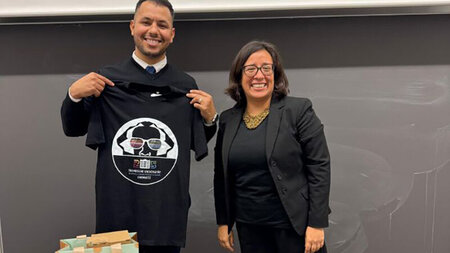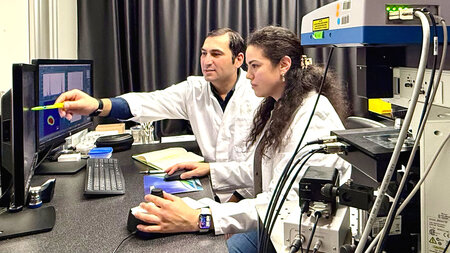Subject-related course guidance for Bachelor and Master studies in Education
Subject-related course guidance Education

-
Phone:+49 371 531-34306
-
Email:
-
Address:Reichenhainer Straße 39, 09126 Chemnitz
-
Room:
During the lecture period I will regularly be personally available. However, until further notice this will only be possible by way of telephone appointments or video conference offers. Every Tuesday (1.00 p. m. – 2.00 p. m.) and every Wednesday (10.00 a. m. – 12.00 a. m.) you may contact me under my office number or in a video conference room for subject-related course guidance. To avoid crosstalks in the latter case, please make a personal appointment during video visiting hours by e-mail (contact data see above).
Enquiries by e-mail will still be dealt with or answered. Currently, additional appointments are only possible in exceptional cases and after having fixed an appointment. During semester breaks, appointments and guidance are possible on request.
- Guidance on (re-)organising B.A./M.A. studies in Education for beginners, (minor subject) students and long-term students
- Guidance on the recognition of qualifications and examinations in B.A. and M.A. studies in education
- Contact partner for signing Form 5 (Qualification certificate for BaföG (state scholarships))
- Guidance on leave, interruptions, changing subjects or on belatedly achieving qualifications or passing examinations or on repeating them.
- Guidance on changing from B.A. Education to M.A. Education (e. g. on conditioned matriculation)
- Subject-related course guidance for those interested in studying (B.A. and M.A. Education) and beginners
- Councellor and Institute coordinator for ERASMUS+ (study stays and internment stays in European foreign countries)
General hints
Before asking for personal guidance you should make use of the Documents to be found on the Institute website as well as the obligatory study documents! Many problems and questions can already be solved this way. In case of more complex problems and questions, a personal appointment makes more sense; simple and minor problems can certainly be solved by e-mail or on the phone. In case of specific questions concerning the each respective Chairs, please make use of the guidance offers there (see contact partners listed below).
Recognition of qualifications and examinations
If you would like to have examinations passed in the context of earlier studies recognized for the B.A. and M.A. Education, this should be prepared beforehand during an appointment. For this appointment, it is obligatory that you bring evidence of the qualifications and examination to be recognized, or you should send it in advance by e-mail. This allows for checking or assessing the possibilities and extent of recognition beforehand.
BaföG (state scholarship) matters
After the 3. semester, receivers of BaföG (state scholarship) must provide evidence by way of Form 5 that they have achieved the `common qualifications´ of the respective semester; the form must be signed by the representative of the department after the qualification overview has been assessed (please bring for your appointment!). Experience so far has shown that often it is not really clear what `common´ actually means. Thus, please note the common practice:
- For B.A. Education, in the ideal case 17 examinations (ex) and 2 qualifications beforehand (qb) must have been achieved until the end of 3. semester. Achieving the `common´ qualifications means that at least 75% of ex and qb must be proven, accordingly, at least 13 ex and one qb (alternatively 12 ex and 2 qb) must have been successfully completed.
- The same percentage (ca. 75%) is valid for 5. semester. As in the ideal case at least 24 ex and 3 qb (whilst considering the different semesters of the consolidation modules) must have been completed, `common´ refers to at least 19 ex and 2 qb (alternatively 18 ex and 3 qb).
Contact partners for major subjects
- General Educational Science (AEW): Dr. Andreas Neubert
- Adult Education and Further Education (EBWB): Tobias Lemke
- Educational Science with a Focus on Methods of Educational Research (BF): Stephanie Cebulla, M.A.
- Intercultural Education (IKP): Dr. Kerstin Meißner/Nicole Macheleidt
Contact partners for minor subjects
- Psychology: Dr. Andreas Neubert
- Sociology: Dr. Andreas Neubert
- Intercultural Communication: Dr. Andreas Neubert
- Economics: Thomas Kuscher
- European Studies: Dr. Andreas Neubert
- English/American Studies: Dr. Andreas Neubert
- Outdoor Education: Anna Jörg. M.A.




